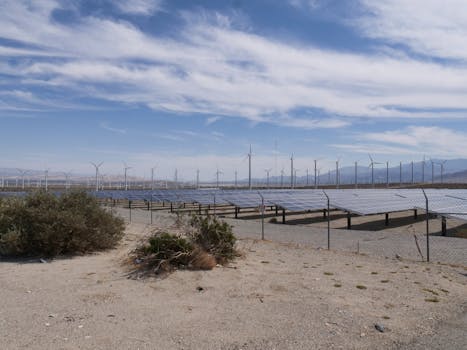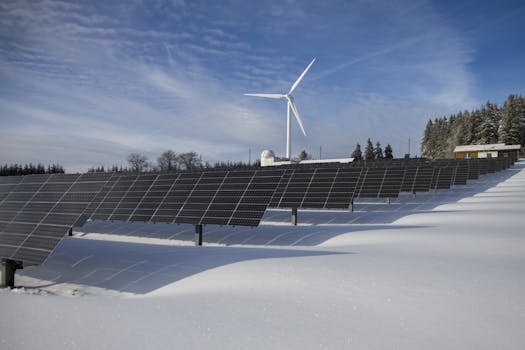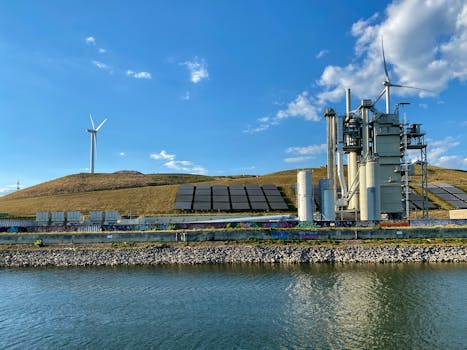
Introduction to Breakthroughs in Renewable Energy

Breakthroughs in renewable energy technology and sustainability are reshaping our world. As the climate crisis intensifies, innovative solutions are emerging to harness natural resources efficiently and sustainably. This article delves into the latest advancements in renewable energy technology, focusing on solar, wind, and bioenergy.
Advancements in Solar Energy Technology

Solar energy has seen remarkable advancements, making it more accessible and efficient. One notable breakthrough is the development of perovskite solar cells, which have the potential to significantly increase energy conversion efficiency while reducing production costs. These cells can be manufactured using less energy and can be applied to various surfaces, expanding the possibilities for solar energy utilization.
Additionally, solar tracking systems have improved, allowing solar panels to follow the sun’s path throughout the day. This technology enhances energy capture by up to 30%, leading to increased overall efficiency. Moreover, integrating solar energy with energy storage systems enables a reliable power supply, even during non-sunny hours.
Innovations in Wind Energy

Wind energy technology has also made significant strides. The advent of larger and more efficient wind turbines has allowed for greater energy production. Offshore wind farms, in particular, have become a focal point for renewable energy development. These installations benefit from stronger and more consistent winds, leading to higher energy yields.
Moreover, advancements in materials science have led to lighter and more durable turbine blades, improving performance and reducing maintenance costs. Floating wind turbines are another innovative solution, allowing for energy generation in deeper waters where traditional fixed turbines are not feasible.
Bioenergy and Its Sustainability

Bioenergy, derived from organic materials, is a versatile renewable energy source. Recent breakthroughs involve the conversion of agricultural waste into biofuels, which can significantly reduce greenhouse gas emissions. Technologies such as anaerobic digestion and gasification are transforming organic waste into valuable energy resources.
Furthermore, advancements in algae-based biofuels are gaining attention. Algae can grow rapidly and produce high yields of oil, making them an attractive alternative to traditional biofuels. The cultivation of algae does not compete with food crops, enhancing its sustainability profile.
Conclusion

In conclusion, breakthroughs in renewable energy technology and sustainability are crucial for addressing the global energy crisis and climate change. Innovations in solar, wind, and bioenergy are paving the way for a more sustainable future. By investing in these technologies and promoting their adoption, we can reduce our carbon footprint and build a cleaner, greener planet for generations to come.




